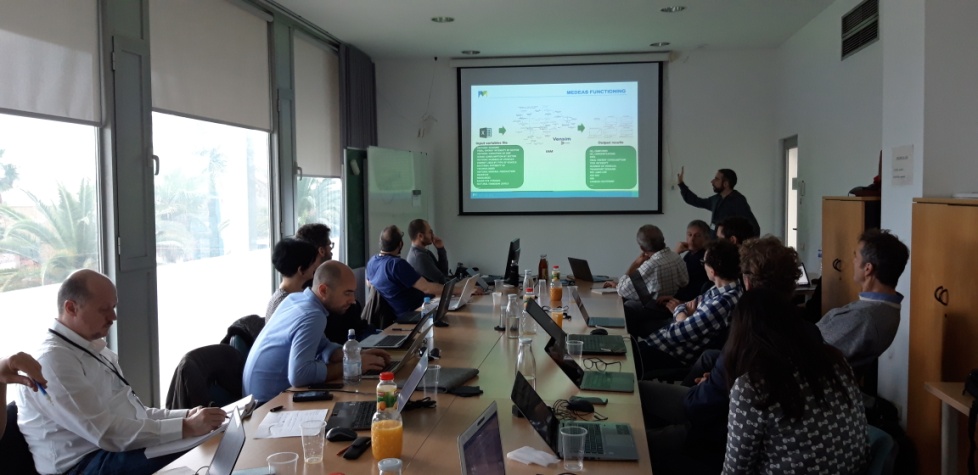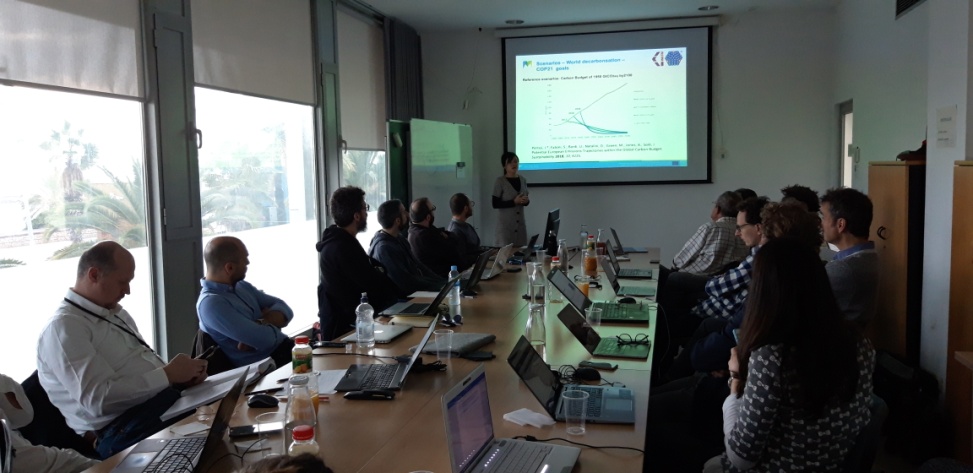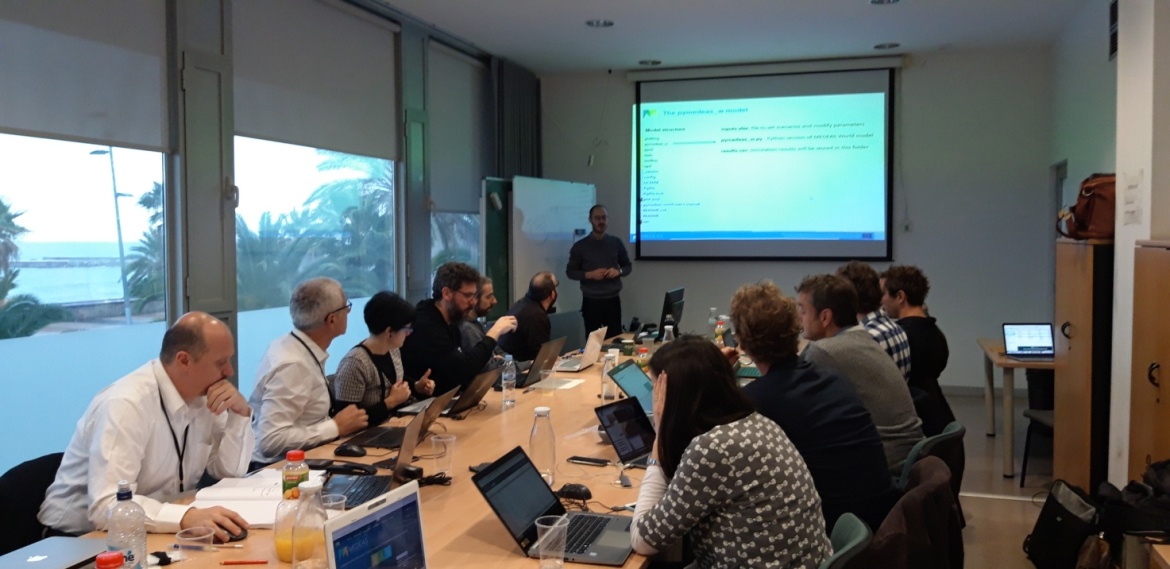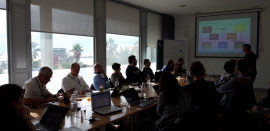The 2nd Board of Stakeholders meeting of the MEDEAS project “Demonstration of the MEDEAS models system” was held on November 16, 2018 between 10:00 AM - 15:30 PM in the premises of the Centre Mediterrani d' Investigacions Marines i Ambientals (CMIMA) of the Spanish Research Council (CSIC) in Barcelona. Nine stakeholders attended the event. The stakeholders that participated were a dispersed group of modellers and academics proposed by project partners.
The stakeholders had the opportunity to download and install the last version of the MEDEAS-World model in python programming language (pymedeas_w) ), which is available to download on the project website. During the meeting, the stakeholders were introduced to the MEDEAS project, they were provided with an overview of the MEDEAS model structure and scenarios; while the main focus was on the demonstration of the MEDEAS model and the presentation of the MEDEAS model results.

A large part of the meeting was devoted to the discussion of the model with the stakeholders and the main focus of the meeting was to exchange with stakeholders and receive their feedback, guidance and insight regarding the MEDEAS world model.
The meeting was a success, as participants expressed their impressions and interest on the model, its use and the concepts behind model development. They also provided interesting feedback and made useful comments in several occasions throughout and after the meeting.
During the meeting some significant feedback that was received related to the positive aspects of the MEDEAS model, such as the fact that it allows the contribution of several scientific communities from different disciplines, the level of reflection of the model assumptions and the degree of the multidisciplinary approach and the fact that most of the disputed parameters and impacts can be activated, deactivated or elaborated by the user. Additionally, the opinion that the model is a good basis to open this class of integrated assessment models to better understand how assumptions impact results and experiment with these dynamics was expressed. The stakeholders also conveyed that the Git Repository of the project should be open in order to encourage external collaboration, the need to further develop the model interfaces especially in interaction with policy makers and the civil society and the need to make the model more transparent to them as well; while further communicating the model to policy makers and stakeholders.

Some very interesting feedback on more technical aspects and in more detail was also provided by stakeholders after the 2nd Board of Stakeholders meeting. As far as installation instructions of the model were concerned, the stakeholders consider that the multi-step installation process should be replaced by a more simplified process; or alternatively by an installer program, or even that the model should run from a dedicated website.

The Command Line interface and the options provided were considered clear for experienced users, but a window-based command procedure, where users click on available options can be proven more attractive to users. On the other hand, the information provided to users through Standard Output during simulation was deemed sufficient, but it was suggested that improvements could be made and manual actions should be replaced by more automated ones. Regarding the plotting GUI, although it encompasses the majority of the most significant parameters studied in the model, it was considered that its quality could be enhanced by further capabilities.

Overall, the MEDEAS project team would like to thank all nine stakeholders (Gilbert Ahamer, Jofre Carciner, Raúl Velasco Fernández, Wander Jager, Kurt Kratena, Luca Pardi, Stefan Pfenninger, Sylvain Quoilin and Ferran Puig Vilar) for their participation in the 2nd Board of Stakeholders and for all their valuable feedback and their contribution.
The next and final Board of Stakeholders meeting of the project will be held in the last months of 2019.

